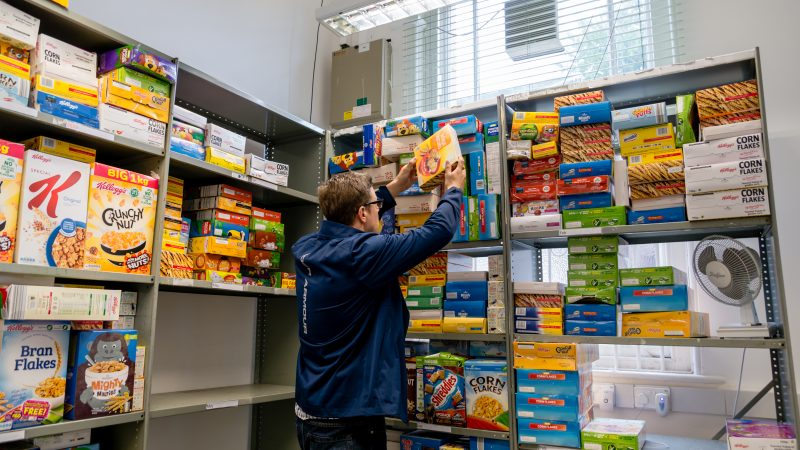
In a recent LabourList article, former Sedgefield MP Phil Wilson criticises the right to food campaign for “curtailing” rather than extending people’s ambitions. It’s a rather bizarre claim. Like a drinker at the end of a three-day bender, Wilson appears to be having difficulty distinguishing between floor and ceiling. It’s rather like suggesting there should be no legal minimum wage as people will be willing to settle for it! Let’s try to put things straight.
As Wilson himself acknowledges, the current cost-of-living pressures are further intensifying the strain on household budgets, which is pushing a growing number of people – including people in work – into a situation where they not only require emergency food assistance but can’t even afford to heat food donated. This is a national scandal.
What difference would a legal right to food make? Wilson appears to believe – quite wrongly of course – that it would simply require the government to take responsibility for the provision of food banks and soup kitchens, as though the ultimate aim of the policy is for everyone in need to be passively doled out something filling, like in a prison canteen or Victorian workhouse.
Of course, people aspire to more than this, and quite rightly so. Whilst the distribution of emergency food parcels has provided a vital lifeline for people in dire need, people deserve to live with greater dignity. So, a number of local providers are moving towards a ‘community pantry’ model where people can have the dignity of choosing their own items.
But the whole point of campaigning for a right to food to be enshrined in legislation is to compel governments to structurally eliminate the drivers of such food insecurity in the first place. We want to end the situation where emergency food aid has become institutionalised as a ‘normal’ part of welfare assistance.
If government had a statutory responsibility to protect the right to food when determining policy, could it have proposed leaving people to face a five-week wait for Universal Credit, punitive benefit sanctions, overseen an epidemic of zero-hours contracts, instituted no recourse to public funds or so much else? As food poverty campaigner Jack Monroe (whose research Wilson cites) observed in response to his article, the right to food is not just about what and how people eat but “links into everything else we apparently stand for: workers rights, fair wages, health, early years, social security, mental health, equality, dignity…”
Quite; a legal right to food represents a challenge to our entire social and economic model, which is now widely understood to be in crisis. In fact, the poverty of political imagination over recent decades with respect to challenging market consumerism has led to our present predicament. The right to food campaign, by contrast, is all about raising expectations about incomes, rights at work and what economists call the ‘social wage’.
The Bakers, Food and Allied Workers Union has helped to initiate the Food and Work Network based at Birkbeck College University of London, which brings together academics, public health professionals, trade unions and community activists to explore in further detail the ramifications of how the food system and wider social ecology would need to be transformed in order to ensure that no one is left to go hungry. The campaign for the right to food will be central to these efforts.




More from LabourList
LGBT+ Labour suspends AGM amid fears of legal action over trans candidates running for women’s roles
‘Hyperlocal messaging can help Labour win elections: Here’s how’
Unite votes to re-examine relationship with Labour and suspend Angela Rayner